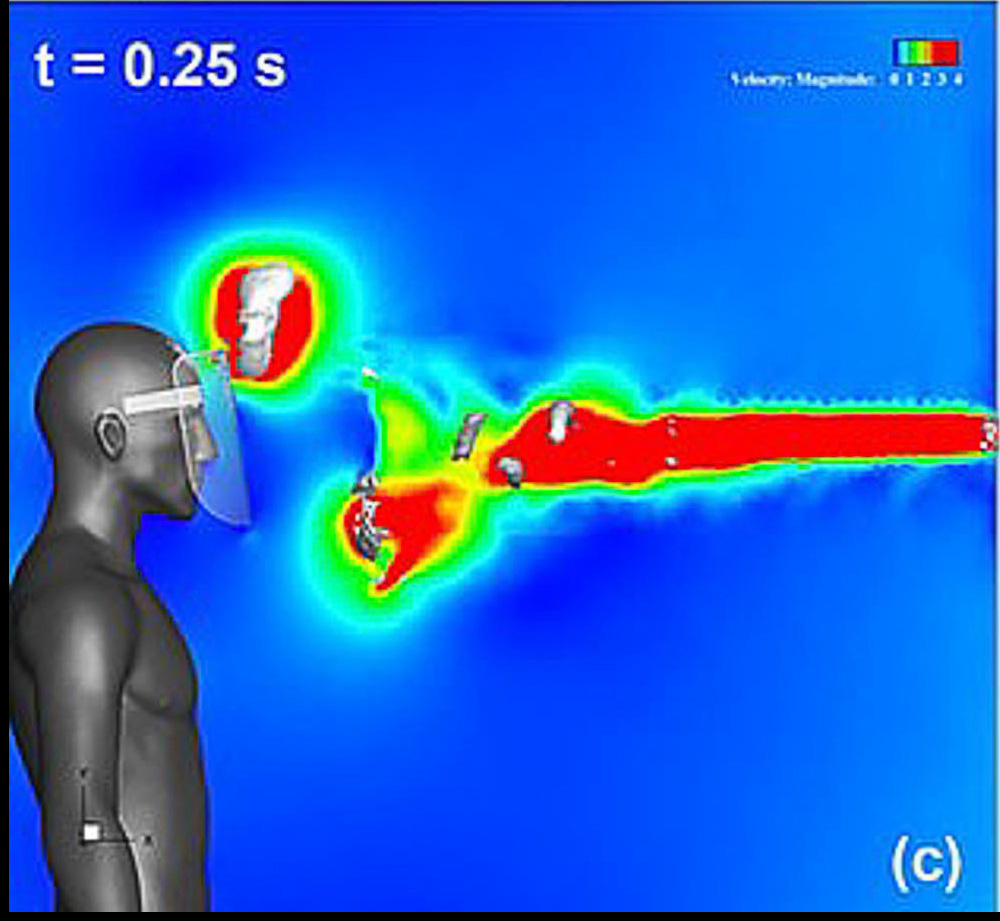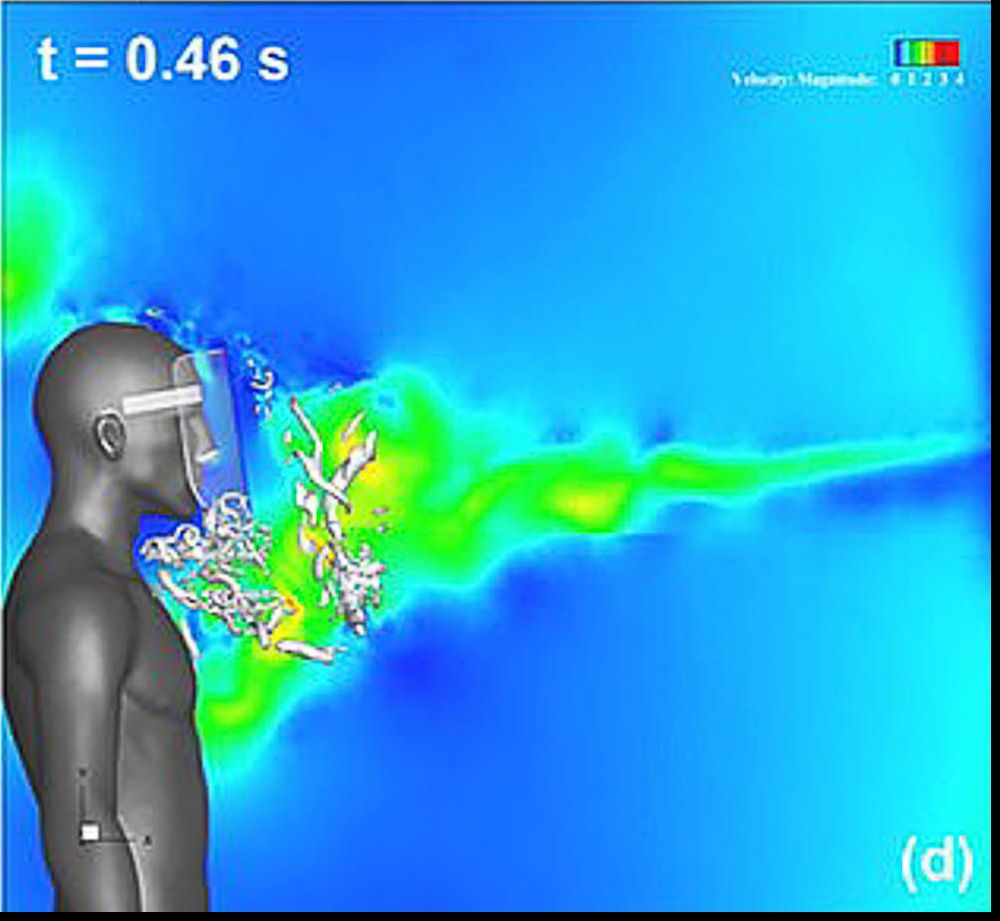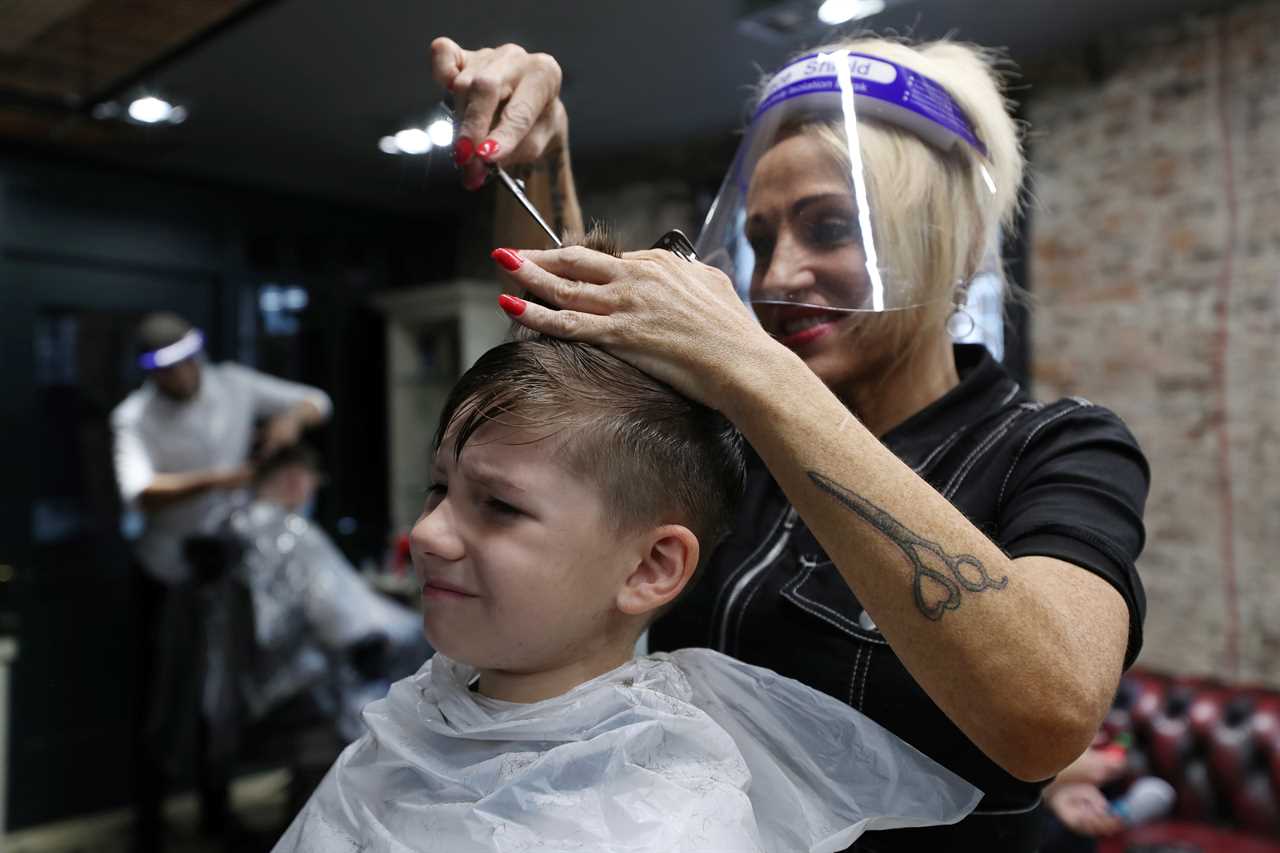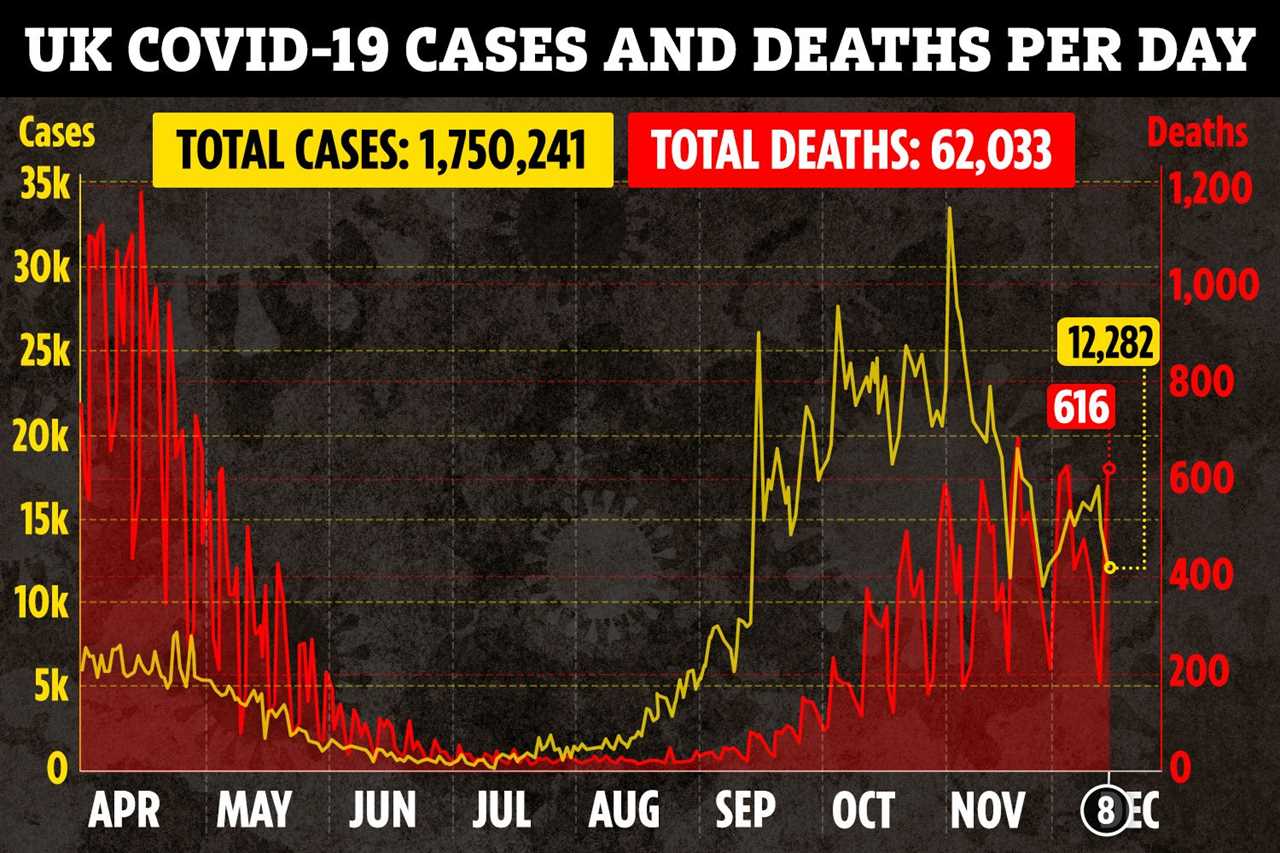PLASTIC face shields don’t protect against Covid-19 if an infected person sneezes, according to new research.
Alarming video shows what happens when a person standing three feet away – in line with social distancing – sneezes at a wearer.


The shields began to be worn by hairdressers, barbers, nail technicians and tattooists to get them back to work after the first lockdown.
But because they don’t completely cover the entirety of the face that leaves room for droplets expelled by the mouth and nose to escape.
A new study has shown what happens when donut shaped ‘vortex rings’ that are invisible to the human eye are propelled towards a face shield wearer.
They travel to the wearer within 0.5 to one second after the start of a sneeze from an infected person one metre – or 39.3 inches – in front of them.

The study shows wearers can be inhaling them if they breathe in at the wrong moment, say scientists from Fukuoka University in Japan,
Study lead author Dr Fujio Agaki explained: “The vortex rings generated by the sneeze capture the microscopic droplets within the sneeze and transport them to the top and bottom edges of the face shield.
“If this arrival time is synchronised with inhalation, the shield wearer will inhale the droplets.”
Dr Agaki and colleagues are working to create face shields safe enough to be worn alone.

By gaining a better understanding of their weaknesses, they believe protection can be boosted by reducing the flow getting inside.
“We want to contribute to keeping people safe from infection, and believe one day in the near future, medical workers will be able to prevent infection using only a face shield and a regular mask or, ideally, with only a face shield,” he said.
The research, published in the journal Physics in Fluids, backs a study by another Japanese team that found the face shields are next to useless.
SAGE warned in August that hairdressers and barbers should wear face coverings and not just visors in order to help curb the spread of coronavirus.
Face visors are also worn by doctors, nurses and other hospital workers on the Covid-19 frontline, but with the addition of a fitted surgical face mask.
In June, researchers at Florida Atlantic University’s College of Engineering and Computer Science showed how effective face masks are in obstructing virus droplets.
They found that masks fitted firmly to the face rather than bandana style coverings were best at preventing droplets from escaping.






